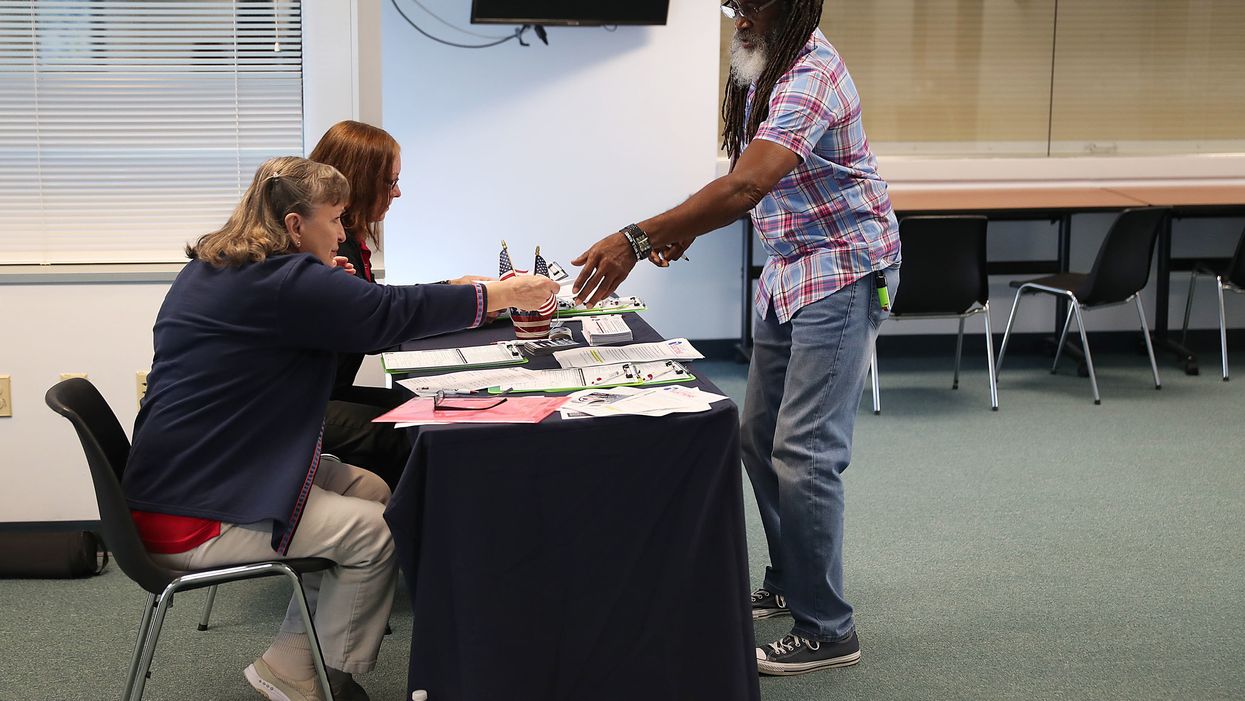Voting rights activists in Florida are complaining to election officials because they believe the state's voter registration forms are not clear that convicted felons who have completed their sentences can now register to vote.
This is the latest dispute over implementation of the Amendment 4 ballot initiative passed by 65 percent of Florida voters last fall, revising the state's constitution to automatically restore voting rights for convicted felons.
Florida's registration forms and online registration system state that felons "cannot register until your right to vote is restored" – a continuation of the language used on the form prior to approval of the amendment.
Elsewhere — and less prominently — the forms do note that voting rights are restored upon completion of all terms of a sentence including parole and probation "pursuant to section 4, Art. VI of the Florida Constitution."
That's the change made by the ballot initiative, but advocates argue not many people are going to understand the legal reference.
Common Cause of Florida, the League of Women Voters and others have written letters to the Florida Department of State complaining about how changes in the registration forms were handled.
The Florida Legislature already stirred controversy when it passed legislation to implement the voter initiative that requires that ex-felons pay all fines and fees in order to have their voting rights restored.
After that law was passed, officials discovered that it is difficult to determine whether a person has paid all the needed fines and fees because the information is maintained by a number of agencies.
A working group created to make recommendations to the Legislature on how that information should be collected met for the final time this week and is now working on a draft report.
In another related development, a hearing is scheduled for Monday at federal court in Florida on a request by several civil rights groups to temporarily block the legislation.
Advocates have equated the requirement with the now banned requirement that voters pay a poll tax. The poll tax was used, mainly in the South, to prevent poor, mostly black citizens from being able to register and vote.




















